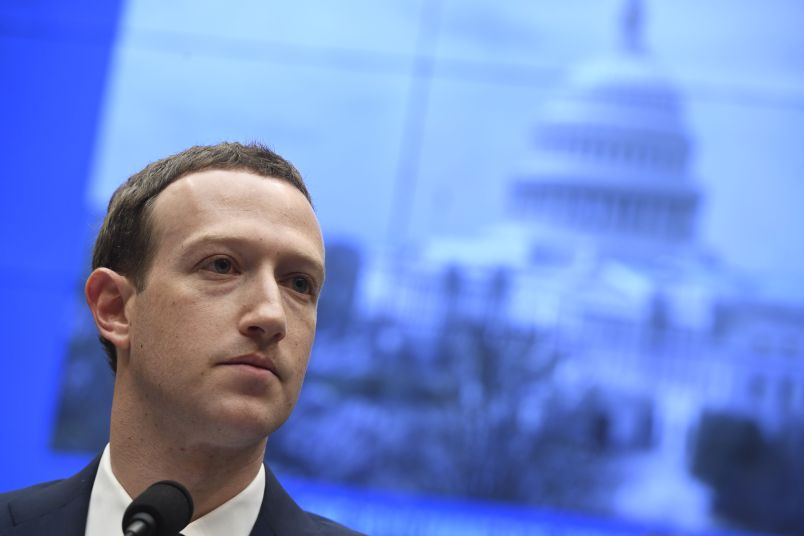Facebook CEO Mark Zuckerberg announced Thursday that the social media company will ban new political ads for the week leading up to Election Day.
The announcement came as the tech executive expressed concerns about how Facebook could be used to manipulate the election in a public post. Zuckerberg said he was “worried that with our nation so divided and election results potentially taking days or even weeks to be finalized, there could be an increased risk of civil unrest across the country.”
Zuckerberg warned Facebook employees and users that the upcoming election would not be “business as usual,” since more voters than ever before are projected be voting by mail amid the coronavirus pandemic and ballots will continue to be counted well after election night likely delaying final results.
“It’s important that we prepare for this possibility in advance and understand that there could be a period of intense claims and counter-claims as the final results are counted,” Zuckerberg said. “This could be a very heated period.”
Facebook has adopted a relatively modest approach to curbing misinformation on its platform especially as it pertains to the President, who has weaponized social media to stoke fear, sow doubt about the legitimacy of the election and promote false conspiracies on a broad range of issues.
Facebook has shied away from taking the kind of posture put in place by Twitter, whose CEO Jack Dorsey late last year announced plans to ban all political ads on the platform.
Just about a year ahead of the election, in fall 2019, Zuckerberg said he didn’t think it was “right” for a company to “censor politicians or the news in a democracy.” He said at the time that his attitudes were not intended to “help politicians, but because we think people should be able to see for themselves what politicians are saying.”
More recently, amid increasing pressure to buckle down on misinformation across Facebook, especially pertaining to the upcoming election, Zuckerberg said he did not believe it was the responsibility of social media companies to be the “arbiter of truth.”
Thursday’s announcement of a ban on new political advertising amounts to PR optics — an appeasement strategy for Zuckerberg to take some kind of action, but he is perhaps reluctant to make a move bold enough to put a dent in Trump’s campaign objectives. Curbing political ads out just one week before the election is unlikely to have the kind of far-reaching effects that the social media company’s chief executive would likely have its users believe, since many voters will cast their ballots several weeks ahead of the election.
“I generally believe the best antidote to bad speech is more speech, but in the final days of an election there may not be enough time to contest new claims,” Zuckerberg said. He added that any ads that began running before the final week ahead of the election will be permitted to continue and advertisers will have the freedom to adjust their targeting during that time.
The company also said it plans to work with election officials to remove false claims about polling conditions in the final 72 hours of the campaign and after Election Day until a winner has been determined.



